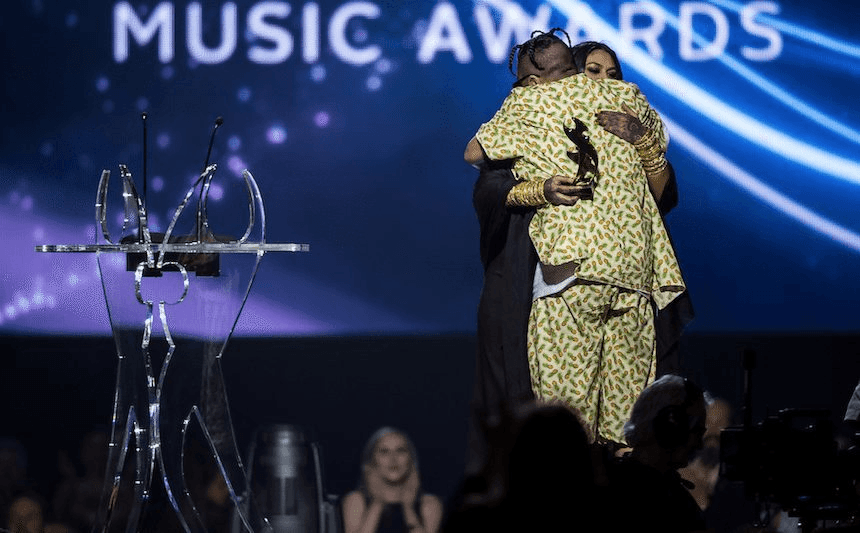Reflecting on Aaradhna’s speech at the New Zealand Music Awards and the subsequent media coverage, Mana editor Leonie Hayden reflects on language, race and how racism is covered in the media.
Just listen.
I’ll admit I laughed when I saw that Aaradhna had been given the same lazy headline as Efeso Collins after his family was turned away from his Auckland Council inauguration a few weeks ago. Another brown person ‘claims’ discrimination. Do they think it’s like a Treaty claim, that it’s something we actually want?
Both incidents have been clumsily shoehorned under the same banner as if racism and racially-motivated bias isn’t an incredibly complex minefield of historical contexts and in fact not a signposted trash fire you can point at and bark ‘dat’s racist!’
Despite the Herald’s reporting, Aaradhna didn’t “hit out at the ceremony” or “[accuse] the organisers of racism”. She stood before an audience of her peers and very gently informed them that language matters. She rejected the term ‘urban’ as a coded racial catchall for music made by people of colour and she gifted her award to someone else. It was about as savage as Kaepernick taking a knee. And it took a lot of guts.
I questioned a while ago why I had been asked to be a judge in the same ‘best urban/hip hop’ category when I was editor at Rip It Up. Coming from a decidedly scrappy rock and punk background, it felt like a bad fit, like my sole qualification was brownness. But I was told they didn’t need more rock judges, and that my predecessor DJ Sir-vere – a hip hop DJ – had been a judge in that category so I had to as well. I shrugged, voted for David Dallas, and accepted my free music awards ticket. I didn’t think about it again until last week.
This is not my take on what Aaradhna said or what it meant. She already told you. Like, she told you. If you don’t know, now you know.
This is just a message of support. That message goes something like this: listen to brown people.
Listen to what makes them feel belittled. Listen when they say “I don’t think this is fair”. If you are responsible for the thing they are questioning, stop, think, ask before you cry “But I’m not racist!” You may not be, but the whole damn system is and we’re all cogs that need to figure out how to start turning in another direction.
A massive, festering turd person on Twitter once demanded I explain the difference between the terms ‘coloured people’ and ‘people of colour’. I said that POC was a term claimed by that community, and the other term had been rejected because it came from an oppressive caste system. That’s really all he needed to know. Not to be deterred from his mission of becoming the largest sentient dump on earth, he insisted and insisted that they were the same words so it didn’t matter.
It was a vivid illustration of a yet another white privilege – the privilege of never having felt undermined by language, by specific words that were created to dismiss or minimise.
Words have so much more than dictionary definitions; they have history, subtext and trauma attached. So they evolve. We can evolve too. The Billboard R&B/Hip Hop Chart was initially known as the Race Records Chart. Let that sink in for a second.
The team at Recorded Music NZ, the organisation behind the New Zealand Music Awards, are in my experience cool, open minded people, but they will have to accept once more that it’s not about them, or their intentions or values. They did a great job of listening to Māori artists about their concerns last year after musician Tama Waipara pointed out that the television broadcast had excluded the Māori music award three years running.
This year they included a red carpet mihi whakatau welcome and broadcasted the award. Next year, they will need to reflect on the language used to define the music being made by our artists. The best way to do that? Just keep listening.
Also this happened:
Dear @vodafoneNZ this is NOT @SOL3MIO
We don't all look the same! pic.twitter.com/rHF3HOJnrW— The Coconet (@TheCoconetTV) November 17, 2016
For more on Aaradhna and the NZ Music Awards, listen to the latest episode of our new music podcast, in which Mana magazine editor Leonie Hayden, Recorded Music NZ CEO Damien Vaughan, Spinoff Music editor Henry Oliver, and Spinoff editor and publisher Duncan Greive discuss the urban category, Aaradhna’s speech and the fallout.



